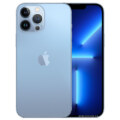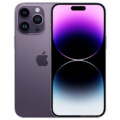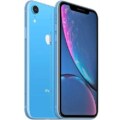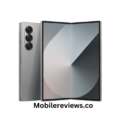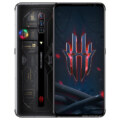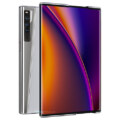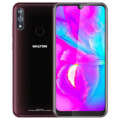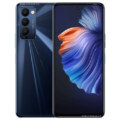Apple iPhone 14
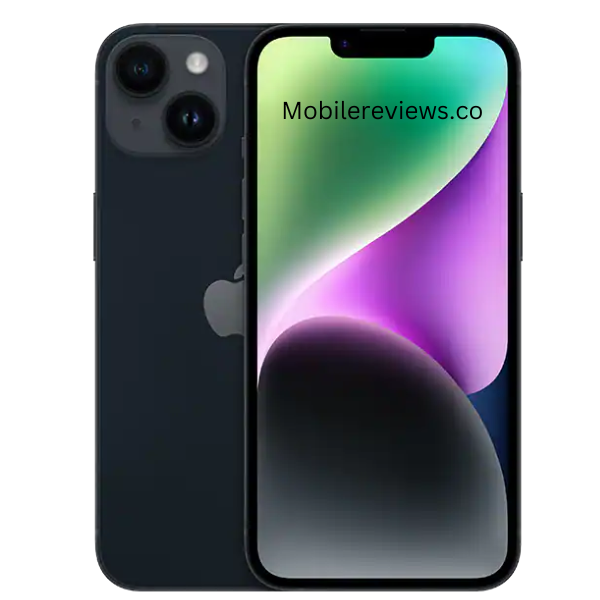

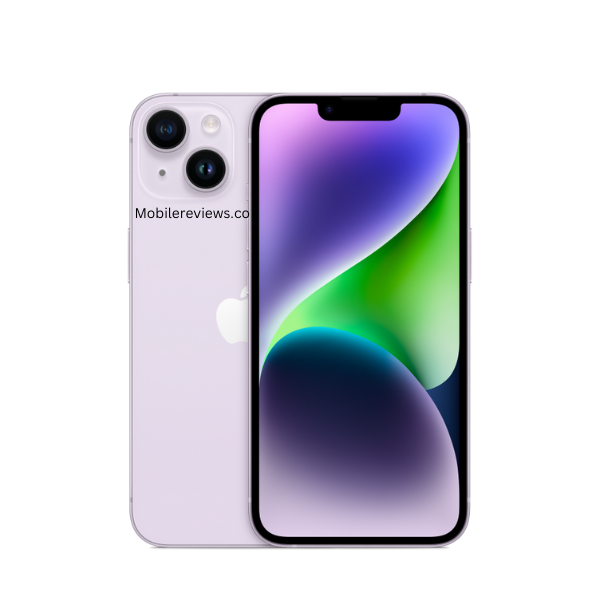

The iPhone 14, the latest iteration in Apple’s iconic smartphone lineup, continues the brand’s tradition of innovation and excellence. With its sleek design, advanced camera system, and powerful A15 Bionic chip, the iPhone 14 promises to deliver an unparalleled user experience.
Boasting significant improvements in battery life, display quality, and software features, this new model aims to set a new standard in the smartphone market. Whether you’re a long-time Apple enthusiast or considering making the switch, the iPhone 14 offers compelling reasons to take a closer look.
Design
The iPhone 14 continues Apple’s tradition of sleek and elegant design, featuring a seamless integration of glass and metal. It offers a refined aesthetic with curved edges and a slim profile, available in a variety of stylish colors.
Display
The iPhone 14 boasts a stunning Super Retina XDR display, offering vivid colors, deep blacks, and HDR for an immersive viewing experience. It features a [specify size] OLED display with [mention any improvements in resolution or refresh rate if known].
Performance
Powered by Apple’s latest [A-series] chip, the iPhone 14 delivers exceptional performance and efficiency. It handles multitasking, gaming, and demanding applications effortlessly, ensuring smooth operation even with intensive tasks.
Camera
Equipped with an advanced camera system, the iPhone 14 enhances photography and videography capabilities. It features [describe main camera specs, such as megapixel count, aperture, and any new sensor improvements]. The front-facing camera delivers stunning selfies and supports [mention any new features like enhanced portrait mode or video stabilization].
Battery Life
The iPhone 14 offers improved battery life, allowing users to stay connected and productive throughout the day. [Mention any improvements in battery capacity or efficiency compared to previous models].
Software
Running on iOS [version], the iPhone 14 provides a seamless and intuitive user experience. It offers access to a vast ecosystem of apps through the App Store and includes features like [highlight any new software features or enhancements].
Connectivity
The iPhone 14 supports 5G connectivity, enabling faster download and streaming speeds. It also features Wi-Fi 6E for improved wireless performance in high-density areas.
Security
With Face ID, the iPhone 14 offers secure and convenient authentication. It ensures that only the authorized user can access the device and sensitive information stored within apps.
Additional Features
- Storage Options: Available in [mention storage options].
- Audio: Enhanced stereo speakers for immersive sound quality.
- Durability: Water and dust resistance with [IP rating].
- Accessories: Compatible with a range of accessories, including [mention specific accessories like MagSafe chargers].
PROS AND CONS
| Pros | Cons |
|---|---|
| Sleek and elegant design | High price point |
| Stunning Super Retina XDR OLED display | No major design innovation compared to previous models |
| Powerful performance with latest A-series chip | Potential issues with software updates or compatibility |
| Advanced camera system | Limited customization options (compared to Android) |
| Improved battery life | No headphone jack |
| Secure Face ID authentication | Dependence on proprietary accessories like MagSafe |
| 5G connectivity | Potential durability concerns (glass body) |
| iOS ecosystem with App Store access |
This table summarizes both the strengths and potential drawbacks of the iPhone 14, offering a balanced view for consumers considering the device. Adjustments may be necessary based on official release and user reviews.
Conclusion
The iPhone 14 combines cutting-edge technology with elegant design, offering users a powerful and intuitive smartphone experience. It sets new standards in performance, photography, and connectivity, making it an ideal choice for those seeking the best in mobile innovation.
This description covers the key aspects of the iPhone 14, focusing on its design, display, performance, camera capabilities, battery life, software features, connectivity, security, and additional features. Adjust details based on the official specifications and announcements when the iPhone 14 is released.
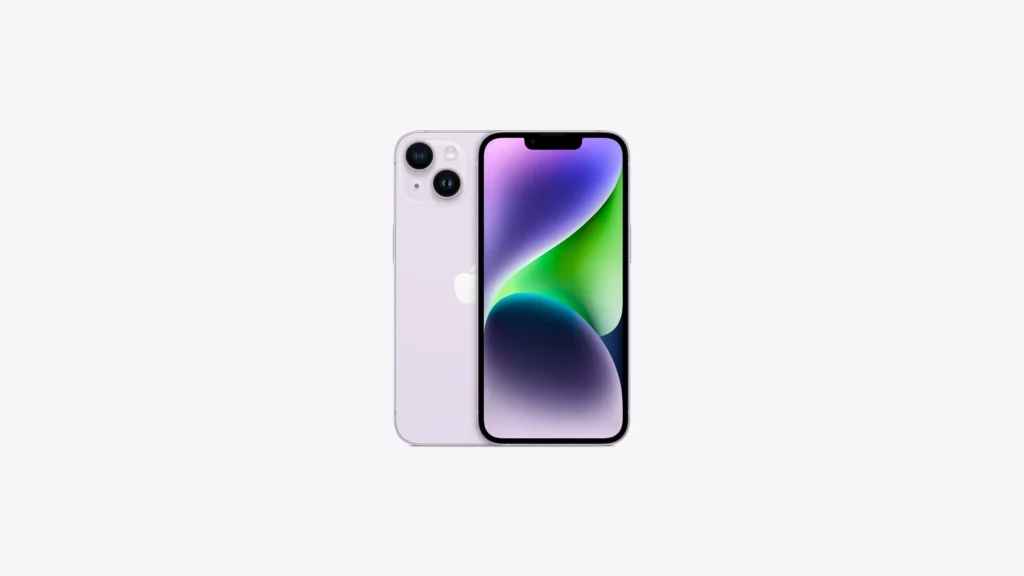
Apple iPhone 14 Specifications
General
| Device Type | Mobiles |
| Model | iphone |
| Announced | 05 September, 2025 |
| Released | 16 September, 2025 |
| Status | Available |
| Price in India | 1200 |
Design
| Type Design Type called form factor refers to a mobile phone's size, shape, and style as well as the layout and position of major components of phone. There are three major form factors seen in mobile phones => bar phones, folding phones and sliding phones. | Bar |
| Dimensions | 146.7 x 71.5 x 7.7 mm (5.78 x 2.81 x 0.30 in) |
| Weight | 172 g (6.07 oz) |
| Colors | Midnight, Purple, Starlight, Blue, Red |
Network
| 2G Network |
GSM 850 / 900 / 1800 / 1900 - SIM 1 & SIM 2 (dual-SIM) CDMA 800 / 1900 |
| 3G Network |
HSDPA 850 / 900 / 1700(AWS) / 1900 / 2100 CDMA2000 1xEV-DO |
| 4G Network |
1, 2, 3, 4, 5, 7, 8, 12, 13, 17, 18, 19, 20, 25, 26, 28, 30, 32, 34, 38, 39, 40, 41, 42, 46, 48, 66 - A2633, A2634, A2635 1, 2, 3, 4, 5, 7, 8, 11, 12, 13, 14, 17, 18, 19, 20, 21, 25, 26, 28, 29, 30, 32, 34, 38, 39, 40, 41, 42, 46, 48, 66, 71 - A2482, A2631 |
| 5G Network |
1, 2, 3, 5, 7, 8, 12, 20, 25, 28, 29, 30, 38, 40, 41, 48, 66, 71, 77, 78, 79 Sub6/mmWave - A2633 1, 2, 3, 5, 7, 8, 12, 20, 25, 28, 29, 30, 38, 40, 41, 48, 66, 71, 77, 78, 79, 258, 260, 261 SA/NSA/Sub6/mmWave - A2482 1, 2, 3, 5, 7, 8, 12, 20, 25, 28, 29, 30, 38, 40, 41, 48, 66, 71, 77, 78, 79 SA/NSA/Sub6 - A2631 1, 2, 3, 5, 7, 8, 12, 20, 25, 28, 30, 38, 40, 41, 48, 66, 77, 78, 79 SA/NSA/Sub6 - A2634, A2635 |
| SIM SIM (Subscriber Identity Module) is a small card that contains mobile network subscriber's account information. This allows the phone using the card to attach to a mobile network. The SIM card is most commonly associated with GSM and UMTS mobile networks. Moving a SIM card from one phone to another allows a subscriber to switch mobile phones without having to contact their mobile network carrier. SIM cards can also be used by a phone to store limited amounts of data, such as phone numbers and text messages. | Nano SIM |
| Dual SIM | Yes |
Display
| Display Type Display Technology => A number of display technologies and types used in mobile phones => TFT (Thin Film Transistor), IPS (In-Place Switching), OLED (Organic Light Emitting Diode), AMOLED (Active-Matrix Organic Light-Emitting Diode), Super AMOLED (an even advanced version of AMOLED), Resistive Touchscreen (Resistive touchscreens contain two layer of conductive material with a very small gap between them which acts as a resistance), Capacitive Touchsceen (Capacitive touchscreen technology consists of a layer of glass coated with a transparent conductor) | Super Retina XDR OLED capacitive touchscreen |
| Size | 6.1 inches, 90.2 cm2 (~86.0% screen-to-body ratio) |
| Resolution | 1170 x 2532 pixels, 19.5:9 ratio (~460 ppi density) |
| Pixel Density Pixel Density (PPI) is refers to the concentration of pixels on a particular display, measured in pixels per inch (ppi). Pixel density is calculated by dividing the diagonal pixel resolution of a display by its diagonal size, higher pixel density better display quality. | 396 ppi |
| Touch Screen | Yes, Multitouch |
| Display Protection Display Protection => Gorilla Glass is a special alkali-aluminosilicate glass shield with exceptional damage resistance that helps protect mobile displays from scratches, drops, and bumps of everyday use, It is always better to go for a smartphone with Gorilla Glass for that added protection and peace of mind. | Scratch-resistant ceramic glass, oleophobic coating |
| Features |
HDR10, Dolby Vision, 800 nits (HBM), 1200 nits (peak) |
Media
| Audio Playback | Yes, MP3, MIDI, WAV, AMR |
| Video Playback | Yes |
| Video Out | Yes |
| FM Radio | No |
| Alert Types | Vibration, ringtones |
| Ring Tones | 64, MP3, WAV |
| Loudspeaker | Yes |
| Handsfree | 3.5mm Headphone Jack |
Camera
| Primary Camera is able to capture photographs and usually videos, The most important characteristics of a camera are the resolution (measured in megapixels), lens focus type (fixed or automatic), higher megapixel cameras are known to capture higher quality photos, but not always a good measurement of the photos quality. | 12 MP, f/1.6, 26mm (wide), 1.7µm, dual pixel PDAF, sensor-shift OIS 12 MP, f/1.8, 13mm, 120˚ (ultrawide) |
| Image | dual pixel PDAF, sensor-shift OIS 12 MP, f/1.8, 13mm, 120˚ (ultrawide) |
| Video | 4K@24/25/30/60fps, 1080p@30/60/120fps, gyro-EIS |
| Camera Features | Ring-LED flash, panorama, HDR |
| Flash Flash Light => There is commonly two types of flash lights are used in camera mobile phones, LED Flash (LED flash offers lower power consumption with drive circuitry that takes up very little room, LEDs can be strobed faster than any other light source), Xenon Flash (xenon flash produces an extremely intense full-spectrum white light for a very short duration) | Dual-LED dual-tone flash, HDR (photo/panorama) |
| Secondary | 8 MP, f/2.2, 16mm, 120˚ (ultrawide), 1/4", 1.12µm 2 MP, f/2.4, (macro) |
Software
| Operating System OS => Every computer system run on a base software called Operating System (OS). Operating System controls all basic operations of the computer (such as smartphone, PDAs, tablet computers and other handheld devices). The Operating System allows the user to install and run third party applications (apps), apps are used to add new functionality to the device. | iOS 16 |
| Facebook Facebook is a popular free social networking website that allows registered users to create profiles, upload photos and video, send messages and keep in touch with friends, family and colleagues. The site is available in 37 different languages. | |
| Youtube Youtube is a popular free video-sharing website, Youtube is the largest video sharing site in the world, Millions of users around the world have created accounts on the site that allow them to upload videos that anyone can watch. |
Hardware
| Chipset Chipset is a group of integrated circuits designed to perform one or a more dedicated functions, often with real time computing constraints, Popular smartphones are equipped with more advanced embedded chipsets that can do many different tasks depending on their programming. | Apple A15 Bionic (5 nm) |
| CPU CPU (Central Processing Unit) mostly known as processors, CPU processes instructions in order to carry out certain functions that make your device operate properly. Processors are often described as the brain of computers, smartphones and tablets, Smartphones and tablets rely on processors to carry out their every task, Processors are an incredibly important factor in selecting any type of computing device, including your smartphone. | Hexa-core (2x3.23 GHz Avalanche + 4x1.82 GHz Blizzard) |
| GPU GPU (Graphics Processing Unit) is a single-chip processor designed to rapidly manipulate and alter memory to accelerate the creation of images in a frame buffer intended for output to a display, This includes things such as lighting effects, object transformations, and 3D motion. | Apple GPU (5-core graphics) |
| RAM (Memory) RAM (Random Access Memory) is a type of computer memory that can be accessed randomly, any byte of memory can be accessed without touching the preceding bytes that allows information to be stored and accessed quickly from random locations. RAM is the most common type of memory found in computer systems, smartphones, tablets and other electronic devices. | 8/12 GB |
| Internal Storage Internal Storage is a data storage space (flash memory) mostly used in smartphones, tablets and other electronic devices where operating system, apps, music, photos, videos, files and other user data Is stored. | 128/256 GB |
| Card Slot Memory Card Slot is a special slot for inserting a memory card. Memory cards allow you to expand the phone's built-in memory, A memory card (sometimes called a flash memory card or a storage card) is a small storage medium used to store data such as text, pictures, audio, and video, for use on small, portable or remote computing devices such as mobile phones, mp3 players, digital cameras. | Unspecified |
| Sensors Sensors are electronic components that detects and responds to some type of input from the physical environment. The specific input could be light, heat, motion, moisture, pressure and location, The output is generally a signal that is converted to use in computing systems, a location sensor, such as a GPS receiver is able to detect current location of your electronic device. |
Fingerprint (side-mounted), accelerometer, compass Virtual proximity sensing |
Connectivity
| Bluetooth Bluetooth is a wireless communications technology for exchanging data between mobile phones, headsets, computers and other network devices over short distances without wires, Bluetooth technology was primarily designed to support simple wireless networking of personal consumer devices. | 5.3, A2DP, LE |
| Infrared Infrared connectivity is an old wireless technology used to connect two electronic devices. It uses a beam of infrared light to transmit information and so requires direct line of sight and operates only at close range. | |
| Wi-fi Wi-Fi is a popular wireless networking technology using radio waves to provide high-speed network connections that allows devices to communicate without cords or cables, Wi-Fi is increasingly becoming the preferred mode of internet connectivity all over the world. | Wi-Fi 802.11 a/b/g/n/ac, dual-band, Wi-Fi Direct, hotspot |
| Wi-fi Hotspot | |
| USB | Lightning, USB 2.0 |
| GPS GPS The Global Positioning System is a satellite-based radio navigation system, GPS permits users to determine their position, velocity and the time 24 hours a day, in all weather, anywhere in the world, In order to locate your position, your device or GPS receiver must have a clear view of the sky. | Yes, with A-GPS, GLONASS, GALILEO, BDS, QZSS |
| NFC NFC (Near field communication) is a set of standards for smartphones and similar devices to establish peer-to-peer radio communications with each other by touching them together or bringing them into proximity, usually no more than a few inches. | |
| HDMI HDMI (High-Definition Multimedia Interface) is a compact audio/video interface for transferring uncompressed video data and compressed or uncompressed digital audio data from a HDMI-compliant source device to a compatible computer monitor, video projector, digital television, or digital audio device. | |
| Wireless Charging Wireless Charging (Inductive Charging) uses an electromagnetic field to transfer energy between two objects. This is usually done with a charging station. Energy is sent through an inductive coupling to an electrical device, which can then use that energy to charge batteries or run the device. | yes |
Data
| GPRS GPRS (General Packet Radio Service) is a packet oriented mobile data service on the 2G and 3G cellular communication system's global system for mobile communications (GSM), Generally, GPRS is used for the purpose of wireless data transfer, such as sharing pictures and videos or browsing the Internet via a mobile phone connection. | |
| EDGE EDGE (Enhanced Data GSM Environment) is a wireless network technology generally considered the next step in the 2G network offers data transfer rates up to four times faster than ordinary GSM networks, Generally, EDGE is used for the purpose of wireless data transfer, such as sharing pictures and videos or browsing the Internet via a mobile phone connection. | |
| Speed | HSPA 42.2/5.76 Mbps, LTE-A, 5G, EV-DO Rev.A 3.1 Mbps |
| Web Browser Web Browser => a web browser is a software application used to locate, retrieve and display content on the World Wide Web, including Web pages, images, video and other files, The primary function of a web browser is to render HTML, the code used to design or markup webpages. | Yes |
Messaging
| SMS SMS (Short Messaging Service) is a text messaging service component of phone, Web, or mobile communication systems. It uses standardized communications protocols to allow mobile phone devices to exchange short text messages over the networks. | Yes (threaded view) |
| MMS MMS (Multimedia Messaging Service) is a standard way to send messages that include multimedia content (audio clips, video clips and images) to and from mobile phones over wireless networks using the WAP protocol. | |
| Email Email (Electronic Mail) is a system for receiving, sending, and storing electronic messages, Similar to a letter, email is text messages that may contain files, images, or other attachments sent via the internet to a recipient by using applications and software prograps. An email address is required to receive email, and that address is unique to the user. | Yes |
| IM IM (Instant Messaging) is an exchange of text messages through a software application, it enable you to create a kind of private chat room with another individual in order to communicate in real time over the Internet. | Yes |
Battery
| Battery Type Battery Type => Cell phones run on various kinds of batteries depending on the manufacturer, phone size or shape and features. There are basically four types of cell phone batteries => Lithium Polymer, Lithium Ion, Nickel Metal Hydride and Nickel Cadmium. | Li-Ion (Lithium Ion) |
| Capacity Battery Capacity is a measure (typically in Amp-hr) of the charge stored by the battery, and is determined by the mass of active material contained in the battery. The battery capacity represents the maximum amount of energy that can be extracted from the battery under certain conditions. | 3279mAh Li-Ion |
| Placement | Non-removable |
Reviews
Offers
Disclaimer Note
We do not guarantee that the information of this page is 100% accurate and up to date.

